Haitian food is flavorful, delicious, and typically simple to prepare! Once you get the hang of the basics, you can make the food of Haiti without much hassle at all. Haitian food draws influence from France and West Africa as well as the Caribbean. Its ingredients are typical, but the preparation of these ingredients make the cuisine truly special.
Interested in learning more about Haitian food, I took some time today to speak to Mirlene Desir from SavoryThoughts.com. Mirlene was born and raised in Haiti before moving to the United States at the age of 9 years old.
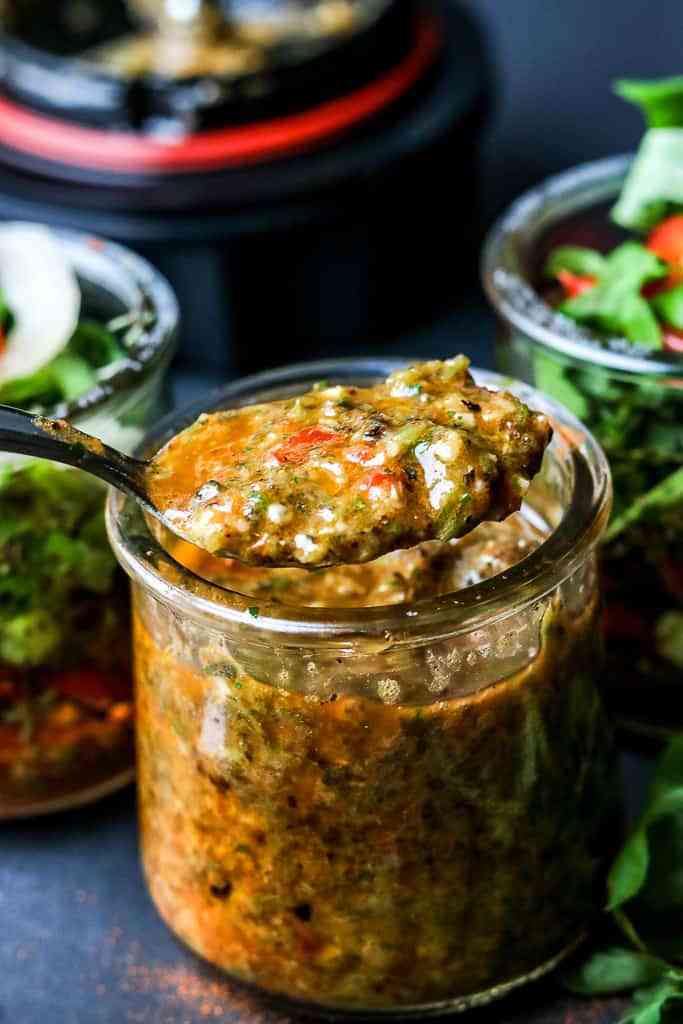
Mirlene has a unique experience, and it was interesting to learn about her childhood in Haiti, and what her relationship with the country is like now after having moved away for so long.
Mirlene’s love and respect for Haiti is palpable in this interview. I hope you readers love it as much as I did!
In the words of Mirlene, “The people of Haiti take great pride in how food is prepared and served. No matter the economic class, food is always served with such grace and appreciation.
Unfortunately, Haitian food doesn’t get much recognition. Our food is very delicious and is made with lots of love. No matter where you are in the country, no matter if you are in a wealthy person’s home or a less fortunate person’s home, you will be served with high grace, love, and appreciation.”

You moved from Haiti to the United States at a young age. Can you tell me what childhood was like in Haiti?
Sure, as far as I can remember life had its ups and down. I grew up in an era where people were starting to adjust to not having electricity on a day to day basis.
The violence started to become a little more prominent with civil wars and the country shutting down. Although as a child, my family sheltered me from it as much as they could, but it was still noticeable. Thankfully we lived in an area where we were not in an immediate danger.
School was wonderful, but definitely different from the schools in the U.S. Lots of memorization. Lots of studying. Tons of homework. Very strict.
As a child I remember playing Osselets a lot. It was very popular among young girls and sometimes the young boys would join as well. Rope jumping was another popular game. And of course, playing soccer.
What was the most surprising thing for you when you moved from Haiti to the United States?
The most surprising thing was seeing those who were less fortunate living in the streets of NY city. My idea of what the United States was definitely did not include individuals living in the streets.
The next surprising thing would be seeing snow for the first time.
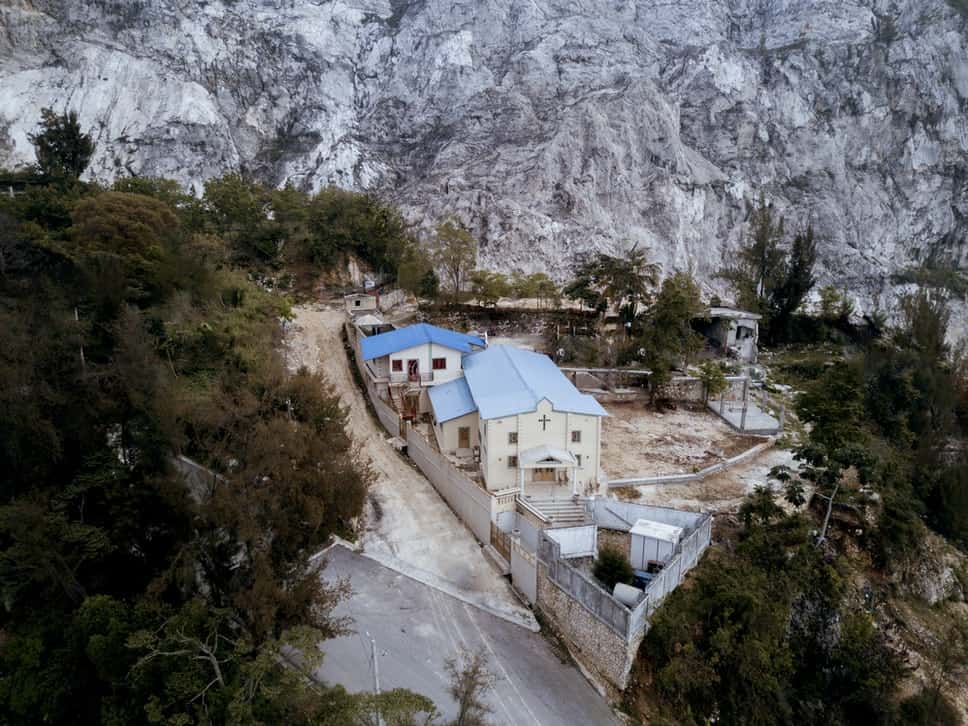
What is your favorite Haitian tradition? Do you have any fond memories centered around food from your time living in the country?
I always enjoy how we prepare for New Years. It is also our Independence Day.
January 1st is a big deal for Haitians. The country’s national soup is prepared. Women often go shopping for that special outfit to bring in the New Years. Some may decide to spend Christmas Eve cleaning for good luck.
Some may choose to have a small gathering. Most often the soup, which is squash soup, is prepared shortly after midnight.
Haiti has had an interesting history with French influence, etc. Can you talk a little about the history of the country and how that history has affected the flavors and tastes of Haitian food?
The French did occupy Haiti, hence why some Haitians also speak French. It is the country’s second language; Creole is the first.
Haiti was known at one point as the wealthiest of France’s colonies. Haitians broke away from France’s control when they gained their independence in 1804.
At one point, Haiti was known for producing a large quantity of chocolate, sugar, and coffee.
Haitian coffee is still rare to get as well as the chocolate. The chocolate is very dark and rich. Both are still some of the most expensive ingredients to purchase.
Haitian food includes a lot of sauces and stews, similar to the French. Our cakes are often filled with butter and very rich. However, it also has a lot of influences from West Africa.

What are mealtimes like in the country? What tools are used most often to cook meals?
From what I can remember, breakfast is always very early, between 8am-10am at the latest. Noon is lunch, and by 3pm dinner would have been served. Anything after that would fall into supper.
Foods include lots of rice, lots of starch, lots of grains, and meat. These items were cheaper to purchase. Buying vegetables, depending on the family and their economic status, would be “high class”.
The country is poor. Most people cannot afford to buy vegetables on a daily basis. Therefore, they resort to rice and beans, corn, grains, and plantains.
It’s hard to discuss Haiti without discussing the earthquake that brought Haiti to the forefront of the world’s mind in 2010. How has the country repaired in the last 10 years?
The earthquake was devastating. Based on the information I have gathered, the country still has not recovered. Unfortunately, lots of lives were lost and lots of homes were destroyed. Some people in the country are still living in tents.
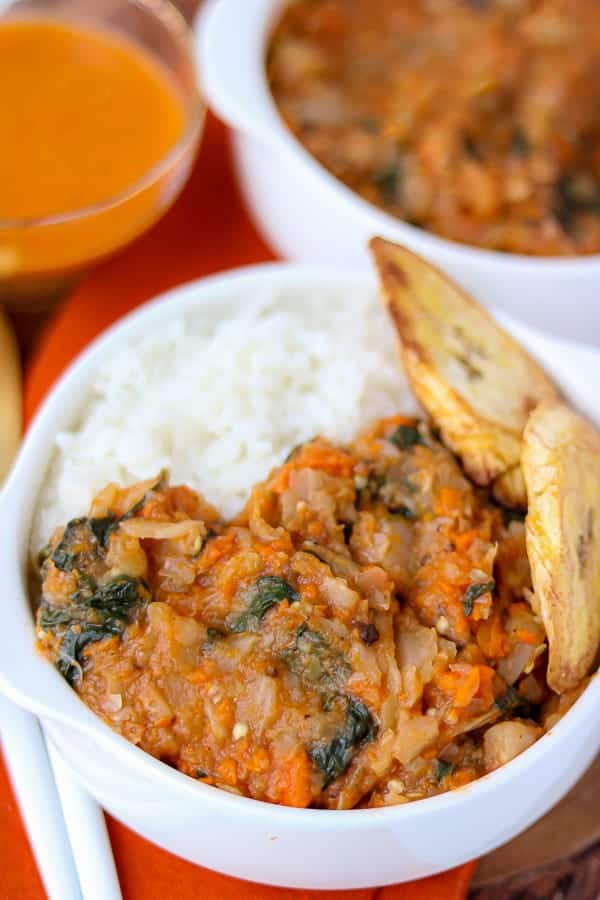
Tell me about Haitian Food, including the most common ingredients.
Rice and beans are common. Corn meal, plantain, and flour porridge are also common.
Vegetable meals are cooked as a stew, like this Legume recipe which can be found on my site. This meal includes cabbage, eggplant, carrots, onions, to name a few. It is very delicious.
What are your everyday Haitian foods? What types of things are common for breakfasts, dinners, snacks?
My way of cooking is not the same as one you’d find from someone who was raised in Haiti. I grew up in the States. I am fortunate to blend the two cuisines together.
However, we do eat a lot of rice, as this helps feed a large family. We eat plantains (boiled or fried), and lots of stews and sauces. With every Haitian meal that’s prepared in our home, we often make an American dish to compliment it by default.
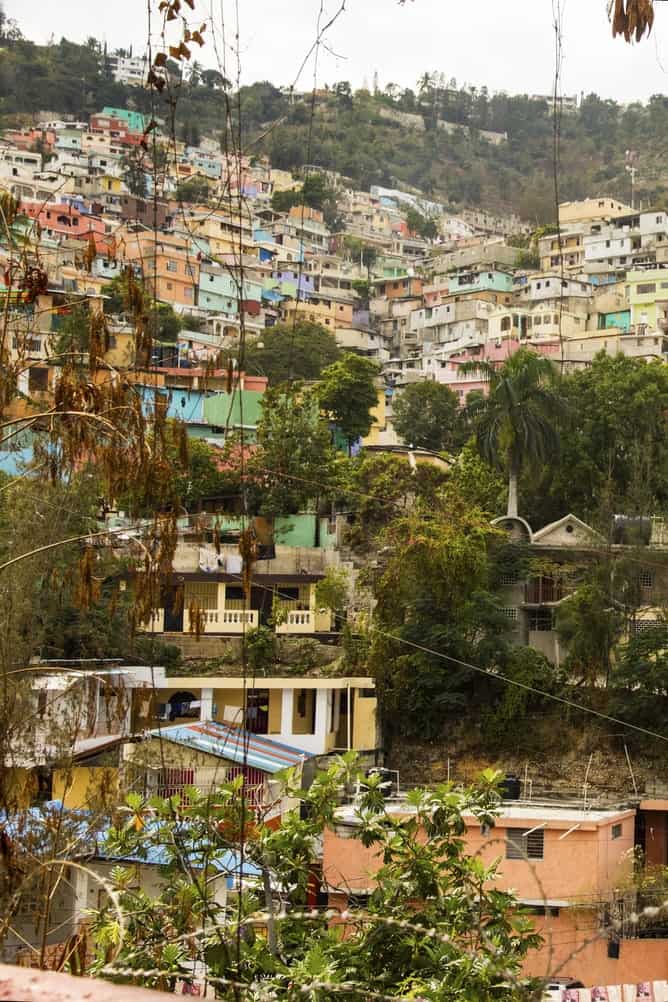
Is there anything eaten in Haiti that’s not eaten anywhere else in the world? Anything surprising?
No. Our food is pretty standard, just prepared differently. For example, the way we prepare meat as far as I can see, is completely different than the rest of the world. It’s labor intensive and requires a lot of patience.
I have a chicken recipe on my blog that explains this in great detail.
What’s your very favorite recipe from Haiti? What is your least favorite food that is traditionally Haitian?
My favorite meal is corn meal with either black beans or black bean gravy, paired with fried or stew red snapper.
My least favorite would be the legume I mention above. Although it is good, I am not a fan of “mushy” meals.

Are there any ingredients that you love that just aren’t the same unless you’re in Haiti?
Unfortunately, because I grew up in America, I do not have much recollection of the ingredients in Haiti. However, I can attest that the food in the United States doesn’t taste the same as it does in Haiti. I traveled back almost 4 years ago, and the food had a richer taste.
Because most people in the country do not have access to a refrigerator, fresh ingredients are often used to prepare meals.
Tell me about your food blog!
Savory Thoughts is a food blog that’s centered around Haitian food recipes. I also include foods from around the world. The idea is to help people who are interested in cooking Haitian food not be so intimidated by the lengthy process. I provide shortcuts, tips and tricks. I explain in detail why certain methods are used and if they are truly needed or not.
My favorite recipe is the Haitian seasoning base. It is essential in Haitian cuisine. However, I have had my readers tell me they use it as a dipping sauce. It’s very delicious. My second would be the Poulet En Sauce, which is the chicken recipe I mentioned above.
My husband and I are trying to use the blog as a platform to bring awareness to Haitian cuisine. Once you learn the basics, you can make any Haitian food. Plus, it’s versatile; Our food pairs well with other cuisines.
Thank you Mirlene for sharing your experience with foreignfork.com. If you liked this post, you might enjoy reading some other country interviews, including:


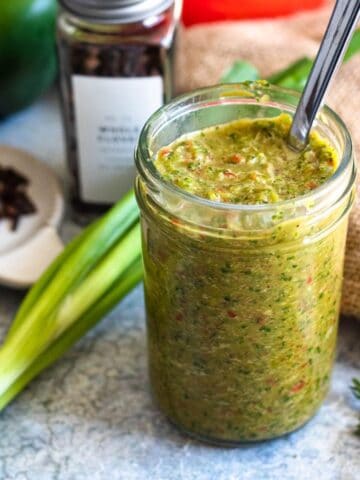
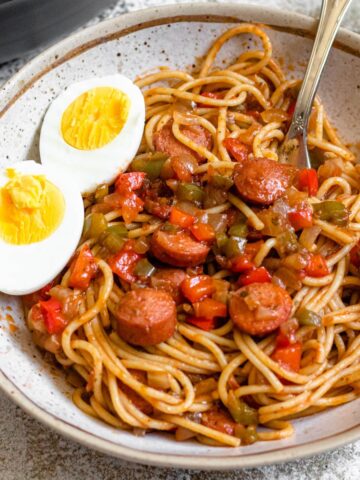
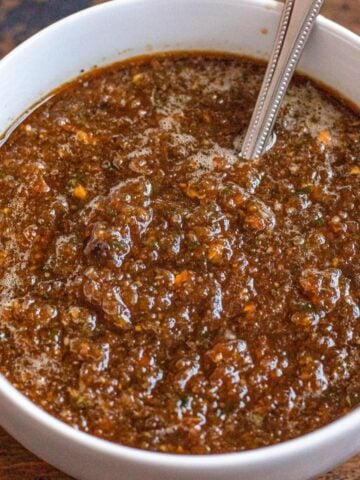
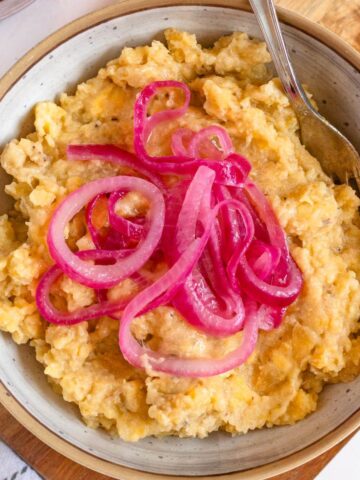


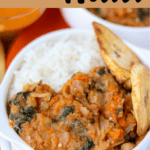
Marie Charles says
Hello Mirlene,
I left haiti when I was 9 years old also. You mentioned that you have online, I s there anyway you can send it to my email provide below.
Mirlene says
Thank you so much for taking the time to interview me, and helping me bring awareness of Haitian cuisine to your readers. I am honored and beyond appreciative.
The Foreign Fork says
It was such a pleasure learning from you Mirlene. Thank you for bringing your expertise to my readers!